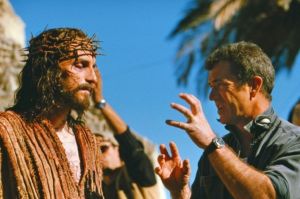Your Theological System Should Tell You How to Exegete
Systematic theology looks at the whole Bible and tries to understand all that God says on a given subject (e.g., sin, heaven, angels, justification).
Exegesis is what you do when you look at a single text of Scripture and try to understand what the author–speaking in a specific culture, addressing to a specific audience, writing for a specific purpose–intended to communicate.
Good systematic theology will be anchored in good exegesis. The sum of the whole is only as true as the individual parts. No Christian should be interested in constructing a big theological system that grows out of a shallow and misinformed understanding of the smaller individual passages. I don't know of any evangelical pastor or scholar who disagrees with these sentiments.
But what about the reverse? We all know exegesis should inform systematic theology, but should our theological systems also inform our exegesis? Some Christians, especially biblical scholars, have argued that the best exegesis is completely theologically unprejudiced. We can't bring our theological concerns to the Bible, lest we gerrymander the Scriptures and impose anachronistic categories on the text. The unspoken (or spoken) assumption is that the traffic between exegesis and theology is one way. Biblical scholars do their work, and as long as theologians pay attention to professional exegesis they can go on and do their own work. But the task of exegesis, it is often implied and sometimes explicitly said, has little to gain from listening to the theologians.
This insistence on making the path between exegesis and theology a one way street is untenable and unwise. Pastors, scholars, and lay interpreters would do well to heed the counsel of Moises Silva:
In contrast [to this one way street], I want to argue not only that the exegete may address theological issues and suggest what bearing the text may have on theological reflection–I go a daring step further: my systematic theology should actually inform my exegesis. To put it in the most shocking way possible, my theological system should tell me how to exegete. (Interpreting Galatians, 207)
Silva goes on to mention three considerations in defense of this "outrageous position."
1. "In the first place, we should remind ourselves that systematic theology is, to a large extent, the attempt to reformulate the teaching of Scripture in ways that are meaningful and understandable to us in our present context" (208). There are many learned commentaries that fail the preacher, let alone the parishoner, because they refuse to ask any of the questions real people are asking. They dive into history, philology, and redaction criticism, but won't talk about what this or that passage means for our view of marriage or our understanding of the devil or our belief in providence. The categories of systematic theology are not static. Some loci wax and wane with the times. But in general, systematic theology deals with the questions Christians have been most interested in discussing over the years or centuries. To set aside theology in the task of exegesis is an invitation to make exegesis irrelevant.
2. "In the second place, our evangelical view of the unity of Scripture demands that we see the whole Bible as the context of any one part" (208). The current debate about Adam, to cite just one example, demonstrates how critical the unity of Scripture is in shaping our exegetical method. If we believe–in the midst of genuine biblical diversity–there is behind each unique human author one Divine author, then we will be concerned to see how the different voices in Scripture make one harmonious sound. So if Romans teaches the doctrine of original sin rooted in a historical Adam we will not be embarrassed to bring this consideration to bear on our understanding of Genesis, not in a way that ignores everything else going in ancient Mesopotamia but in a way that informs our understanding of God's inspired, unified Word. Of course, eisegesis is a danger which is why some scholars want to set aside "the analogy of faith" in the exegetical process. But to do so, Silva reminds us, "is to neglect the most important hermeneutical resource we have, namely, the unity and wholeness of God's own revelation" (209).
3. "Third, and finally, my proposal will sound a lot less shocking once we remember that, as a matter of fact, everyone does it anyway" (209). If postmodernism has taught us anything it is that none of us comes to a text with a completely unbiased, blank slate. We come to the exegetical task for a framework, with a way of looking at the world, with a system. This is how the mind works and one of God's gifts which make learning possible. It also makes the preacher's herculean task more feasible. Without a systematic theology how can you begin to know what to do with the eschatology of Ezekiel or the sacramental language in John 6 or the psalmist's insistence that he is righteous and blameless? As a Christian I hope that my theology is open to correction, but as a minister I have to start somewhere. We all do. For me that means starting with Reformed theology and my confessional tradition and sticking with that unless I have really good reason not to.
So rather than pretend to be theologically unprejudiced, why not acknowledge our own preconceptions and use them in the exegetical process? If we are honest about our theological systems we will be better equipped to reformulate our grid when it doesn't work and better equipped to deal openly with the hard spots in the text. Without a system we will approach a passage like James 2:24 and get it wrong; or just as likely, we will ignore the difficult questions exploding in everyone's brains. Theology does not have to distort exegesis. Done well, it can help provide guardrails for the interpretive process, honor the unity of Scripture, and throw a spotlight on the most important and most difficult issues arising from the Word of God.





























